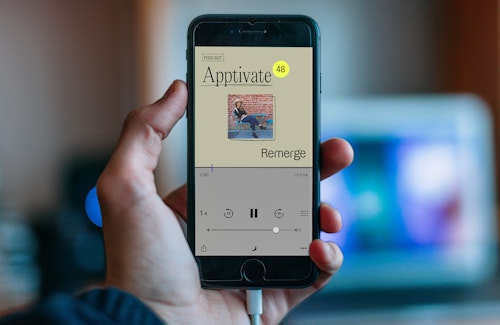#48 Why Gaming Apps Should Be Talking Directly to Their Users
June 16, 2020

Sometimes your loudest critics are your greatest asset. This mobile game app launched an ambassador program to communicate and engage with its users to guide their marketing and product decisions. The result: year after year growth and retention. Find out why and how they did it.
Amanda Lulewicz is the director of product marketing for Crowdstar at Glu Mobile, a leader in 3D freemium mobile gaming. Amanda works with the game Covet Fashion. She came to mobile marketing from a background in fashion public relations.
Listen and Subscribe
Listen on Apple Podcast
Listen on Spotify
Questions Amanda Lulewicz Answered in this Episode:
- How do you interact with your consumer base to empower the decisions you make in your marketing initiatives?
- How do you communicate with the users who are not a part of the ambassador program?
- What’s been the empirical result on your growth and retention from proactively communicating with your users?
- How do you leverage the feedback you get from your ambassador program in your marketing?
- What’s your process for sharing feedback with the product team?
- How do you focus your time?
- What’s the main reason people churn from your app?
Timestamp
- 5:40 Crowdstar’s history and relationship to Glu
- 9:15 The feature flop that got Glu talking directly to its consumers
- 12:45 Glu’s channels for communicating with users
- 14:56 Impact on retention
- 17:13 Getting called out on ads by game ambassadors
- 23:27 Releasing 6-7 new pieces of content every day
- 25:36 Celebrating Covet Fashion’s 7th anniversary
Quotes
(7:00-7:20) “Women often don’t like to take time for themselves. They feel guilty if they’re just kind of off, maybe just playing a game, just doing something purely to relax and enjoy themselves. And they wanted something that actually tied back into their real life. They wanted to feel like they were learning something, like they were accomplishing something. So Covet Fashion was kind of born to meet that need.”
(13:03-13:20) “We realized we needed to be a lot more transparent with our community about the updates we were making, why we made the decisions we made; if something was going wrong in the game, explaining what was going on. And from there, we kind of lifted the veil of this cold, hard tech company and actually showed them who we were as people.”





